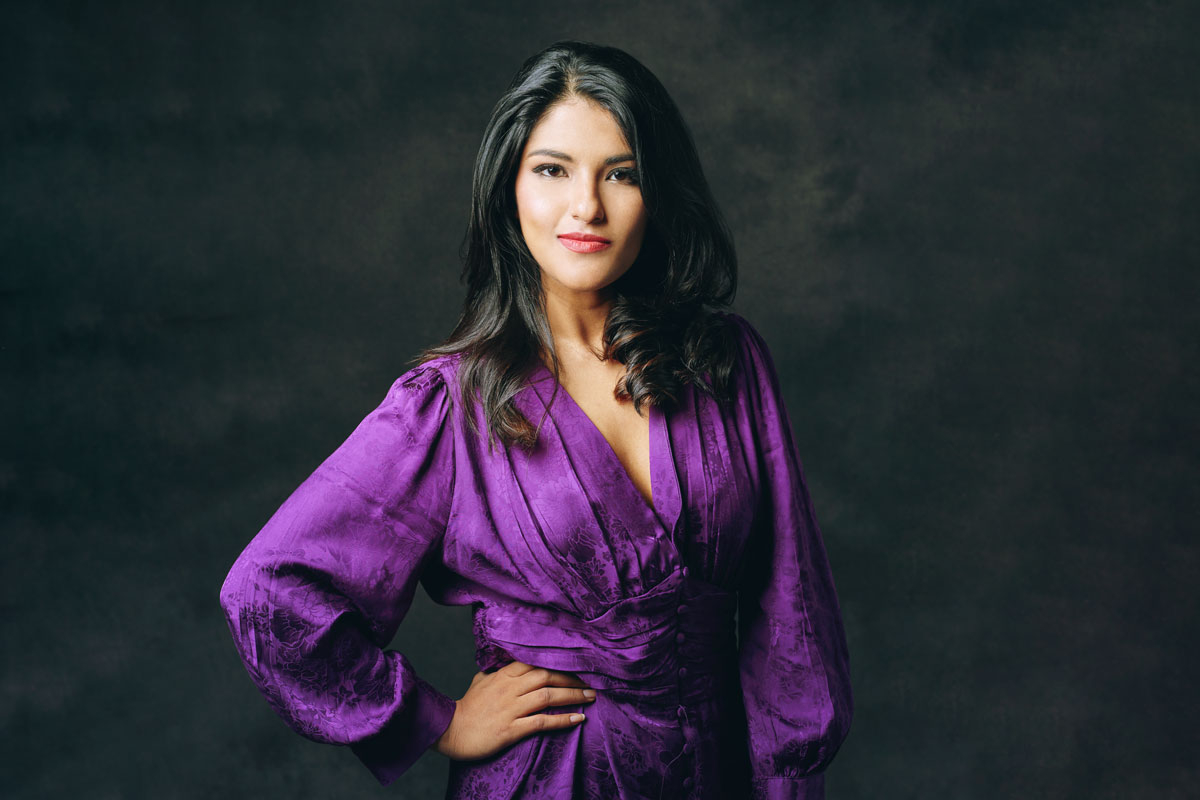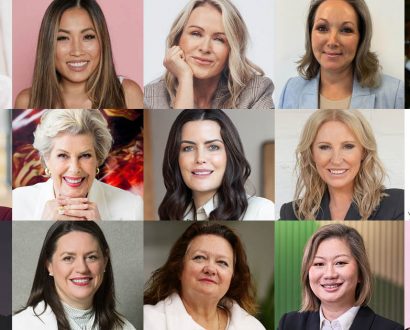When it comes to entrepreneurship, Ankiti Bose is something of a legend. Thanks to the rapid success of Zilingo – the business-to-business ecommerce platform that she co-founded with Dhruv Kapoor in 2015 – she’s on the fast track to becoming the first Indian woman to found a billion-dollar startup. And she’s only 29 years old.
To make it that big that fast – she co-founded Zilingo when she was 23 – it would seem as though entrepreneurship was in her DNA. But that’s actually not the case. Ankiti’s upbringing was surprisingly humble. Her mother was a college lecturer and her father worked for the government; a stint that saw Ankiti moving from one small Indian city to another.
So how did this down-to-earth, former McKinsey & Company management consultant make the fateful leap into entrepreneurship? In her words, “foolish courage”.
“There was a lot of foolish courage involved in starting up,” Ankiti tells The CEO Magazine. “It was a decision completely driven by passion and optimism. I saw the opportunity in South-East Asia; the growth of the region looked like it could be phenomenal because it was super under-penetrated. But had I over-analysed the situation, it would’ve been harder to make the decision.”
Coming from India, South-East Asia was an entirely different animal. It was an area full of new for Ankiti — new countries, new cultures, new foods, new currencies and new languages. Even more, she’d be saying goodbye to her family and friends. “I was leaving a country that I was familiar with. The people, the food, the language – everything was going to change,” she recalls. “While it was definitely a tough decision to make at the time, I’m glad it worked out.”
And worked out it has. Ankiti has helped grow Zilingo to its US$970 million valuation today – just US$30 million shy of the magic US$1 billion figure necessary to earn it full unicorn status. While that’s a tremendous feat most companies only dream about, Ankiti is more thrilled with Zilingo’s impact than its status.
“Being a unicorn company was never the goal,” she admits. “And it was never about just selling clothes to businesses and somehow working in fashion. Zilingo was genuinely created to make fashion more fair, transparent and sustainable. We think that we’re making a difference and making the world better. So, for us, that valuation doesn’t really mean anything unless we’re delivering really solid outcomes for our shareholders.”
Answering a call
While Zilingo got its start as a way for small merchants across Thailand and Singapore to sell their goods online, it’s become that and so much more today. In 2017, Zilingo transformed into a B2B platform, bringing merchants and raw material wholesalers together on one platform, making sourcing easier and more transparent.
“We saw a problem that we knew we could solve that none of our competitors were solving,” Ankiti explains. “The whole value chain before the product actually reached the sellers on our platform was broken. So our whole shift to B2B happened to help us do the things our merchants really wanted us to do. It was all about adding value for them while staying true to our mission. And in doing that, it positioned us in a sweet spot in the supply chain right where our merchants needed us.”
And it couldn’t have come at a better time. If COVID-19 has taught the world anything, it’s the importance of digitisation. Had Zilingo not existed, the small and medium-size enterprises on its platform would likely not be here today. “The pandemic has been this kind of random black swan event that has forced digitisation,” Ankiti says. “For the businesses who have taken advantage of digitising, they are moving forward. But for those that couldn’t or wouldn’t, well, they have had to face some really tough consequences.
“The industry was hit hard, and a lot of businesses just straight up collapsed. If they weren’t using a platform like ours, they actually struggled a lot last year because they didn’t know how to offload their inventory, how to create liquidity, or how to access products that were still being made and shipped during the pandemic.”
Pandemic-proof

It’s been a tough time to say the least, and the long-term ramifications are still largely unknown. But luckily for Zilingo, it’s managed to remain virtually pandemic proof through it all.
“For us, it’s been phenomenal because most of the businesses that we would have otherwise had to convince to use our technology already know they need it. Now our entire pitch doesn’t even need to happen,” Ankiti says. “Our business has actually grown in the sense that it has become more profitable over the last year.”
And in true fashion, during this challenging time, Ankiti ensured Zilingo was doing its part to help those who weren’t as fortunate. In the thick of the pandemic, Zilingo began supplying much-needed personal protection equipment to hospitals across India, Indonesia and Singapore. Later, Zilingo started shipping the crucial PPE supplies worldwide.
It’s certainly not the first time Ankiti has stepped up to help others. As a young Asian woman, she has faced her fair share of bias in her journey to the top. Even when success struck and Zilingo made it big, she still found herself in meetings where she was mistaken for an assistant or a model for the products on the platform. However, instead of letting it get to her, Ankiti uses it as fuel to drive progress and pave the way to success for other women.
“Today, women like me are the exception, but I hope for the next generation, we’re the rule.” – Ankiti Bose
“The world is not a level playing field. And I think anybody who says or thinks that it is fooling themselves,” she says. “There are definitely biases in every industry, and it’s harder for minorities, for women, and for LGBTIQA+ people to scale the corporate ladder.
“So you can choose to get agitated about it, or you can choose to understand that people are coming from a space of deep conditioning and stick with the journey. Set your eyes on the long-term agenda and try not to let those negative experiences break your spirit. Because I believe that the only way to create lasting change is to have more people like me become successful, making it easier for the next generation of women that come after me. Today, women like me are the exception, but I hope for the next generation, we’re the rule.”
Ankiti Bose: Leading the way

To lead that change, Ankiti ensures Zilingo walks its talk with a workforce that’s at least 50 per cent female with a majority of those women also in leadership roles. However, while putting women in these positions and giving them opportunities is great, it’s just skimming the surface of a much deeper problem that needs to be addressed.
“Society almost vilifies women between the ages of 28 and 35 if we don’t have kids and we’re not married. There are people who will really look down upon a woman for not being a mother and focusing on her family,” she says. “But at the same time, if you are a woman with children, then you’re often penalised in the workplace. We just can’t win. It’s like the system is rigged for women who want to have it all.”
And, she says, it gets even worse for less privileged women in unorganised labour, especially in the fashion industry. They often don’t have support from their partners, and their employers aren’t likely to work around their schedules, making sure their careers are maintained while they support their families. “These female workers have no options,” Ankiti says. “And society is asking why these women are not pushing themselves, while on the other hand, it’s punishing them for doing so.
“At least within our network, we’re trying to do as much as we can to support these women. We acknowledge that professional and personal development needs to be different for women, especially of the childbearing age, so we mentor them a little differently. We have women circles where women support each other. And, of course, we’re also very flexible with our maternity policy and so on and so forth.”
Breaking new ground

Even more, Ankiti stresses that the men Zilingo employs must also be on board with the mission to empower diversity within the organisation. “So many men often say this is just a women’s issue. But this is not a women’s issue; this is a people’s issue,” she says. “At the end of the day, it will deeply affect the organisation if it doesn’t have diverse leadership. We need to train men to be part of the solution because you can’t solve a problem for half of the population without involving the other half.”
And when she thinks about how far she’s come and the success that Zilingo has amassed, it almost leaves her speechless – almost. “It blows my mind,” she beams. “To think, that in this day and age, it’s possible that a young, Brown woman can start something that in a very short while becomes a huge company, is actually pretty amazing. I hope my success inspires more girls to believe that they can do anything they want to do.
“When I look at the success of the women around me, whether it’s Kamala Harris or the Bumble Founder and CEO Whitney Wolfe, I’m just incredibly happy; not just in a sense that, ‘Oh my God, this is happening.’ But in a sense of, ‘Wow, this is achievable’ – a 31-year-old woman with a baby in her arms is ringing the bell at NASDAQ.’ It’s just amazing.”







